The Panama Canal
David McCullough
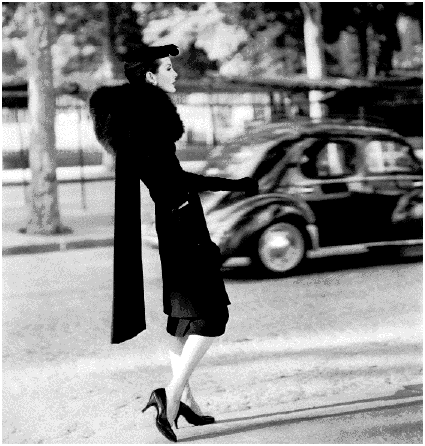
It was not until 1895, for example, that a full account was published of even the common North American variety. The general impression was that all mosquitoes were more or less alike. At the time Reed and his co-workers identified Stegomyia fasciata as the yellow fever mosquito, no studies had ever been made of the insect's natural life history. So this too had been part of Gorgas' task at Havana and consequently he and his associates had discovered astonishing peculiarities that were of enormous value.
Seen under the microscope, Stegomyia is a creature of striking beauty. Its general color is dark gray, but the thorax is marked with a silvery-white lyre-shaped pattern; the abdomen is banded with silvery-white stripes and the six-jointed legs are striped alternately with black and pure white. Among mosquitoes Stegomyia is the height of elegance. Stegomyia is also, like the rat, a creature of human society. It survives by maintaining a close proximity to human beings. As among all mosquitoes it is only the female that bites --- that is, only the female feeds on blood, while the male gets by on other liquids such as fruit juices and is quite harmless. For the female, blood is essential to mature her eggs. Though the female Stegomyia can feed on any warm-blooded animal, her decided preference is for human blood, and thus the whole life cycle of the insect must be maintained in close association with human society.
reading
Michael A Ingall
On the label of the package was Eli Lilly. I always assumed that he, too, was a Jewish pediatrician. Only when I started school and learned about Eli Whitney's cotton gin and Elihu Yale's university, did I learn that he was no more Jewish than Orville Redenbacher. My first year in medical school was spent in laboratories, dissecting a moldy cadaver, looking under the microscope at pieces of liver sliced so thin as to make a counter man at the Carnegie Delicatessen throw up his hands in despair. I wore the same laboratory coat all year. It began, like the rest of me, starched stiff and white, and ended like me, stained with blood, mucus, feces and despair.
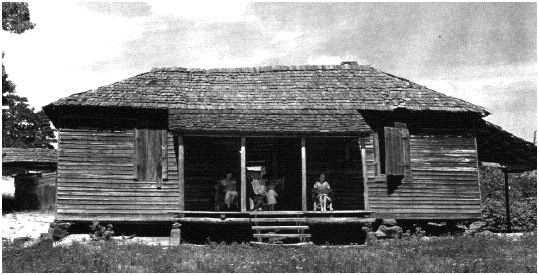
The Boss led the way out to the front porch. We all tailed him out like a procession. The photographer went to the second car and unpacked a tripod and the rest of his plunder and got it rigged up facing the steps. The Boss was standing on the steps, blinking and grinning, as though he were half asleep and knew what kind of a dream he was going to have."We'll just take you first, Governor," the photographer said, and the rest of us eased off the porch and out of range.
The photographer hid his head under the black cloth, then he popped out again all agog with an idea. "The dog," he said, "get the dog in there with you, Governor. You be petting the dog or something. Right there on the steps. It'll be swell. It will be the nuts. You be petting that dog, he's pawing up on you like he was glad to see you when you come home. See? It will be the nuts."
"Sure, the nuts," the Boss said.
Then he turned toward the old white dog, which hadn't moved a muscle since the Cadillac pulled up at the gate and was lying over to one side of the porch like a worn-out fur rug. "Here, Buck," the Boss said, and snapped his fingers.
But the dog didn't show a thing.
"Here, Buck," the Boss called. Tom Stark prodded the dog with his toe for a little encouragement, but he might just as well have been prodding a bolster.
"Buck is gitten on," Old Man Stark said. "He ain't right spry any more." Then the old man went to the steps and stooped down with a motion which made you expect to hear the sound of old rusty hinges on a barn door. "Hi, Buck, hi, Buck," the old man wheedled without optimism. He gave up, and lifted his gaze to the Boss. "If he was hongry now," he said, and shook his head. "If he was hongry we could guile him. But he ain't hongry. His teeth gone bad."
The Boss looked at me, and I knew what I was paid to do.
"Jack," the Boss said, "get the hairy bastard up here and make him look like he was glad to see me." I was supposed to do a lot of different things, and one of them was to lift up fifteen-year-old, hundred-and-twenty-five-pound hairy white dogs on summer afternoons and paint an expression of unutterable bliss upon their faithful features as they gaze deep, deep into the Boss's eyes. I got hold of Buck's forelegs, as though I were girding myself to shove a wheelbarrow, and heaved. It didn't work. I got his front end up for a second, but just as I got him up, he breathed out and I breathed in. One gust of Buck was enough. It was like a gust from a buzzard's nest. I was paralyzed. Buck hit the porch boards and lay there like the old polar-bear rug he resembled.
Then Tom Stark and one of the reporters shoved on the tail end and I heaved on the front end and held my breath and we got Buck the seven feet to the Boss. The Boss braced himself, and we heaved up the front end, and the Boss got a gust of Buck.
That gust was enough.
"God's sake, Pappy," the Boss demanded as soon as he had mastered his spasm, "What you been feeding this dog?"
"He ain't got any appetite," Old Man Stark said.
"He ain't got any appetite for violets," the Boss said, and spat on the ground.
"The reason he fell," the photographer observed, "was because his hind legs gave down. Once we get him propped we got to work fast."
"We?" the Boss said. "What the hell you mean we. You come kiss him. One whiff would curdle milk and strip a pine tree."
The Boss took a deep breath, and we heaved again. It didn't work. Buck didn't have any starch in him. We tried six or seven times, but it was no sale. Finally the Boss had to sit down on the steps, and we dragged Buck up and laid the faithful head on the Boss's knee. The Boss put his hand on Buck's head and looked at the photographer's birdie. The photographer shot it, and said, "It is the nuts," and the Boss said, "Yeah, the nuts."
The Boss sat there a few seconds with his hand on Buck's head. "A dog" the Boss said, "is man's best friend. Old Buck, he's the best friend I ever had." He scratched the brute's head. "Yeah, good old Buck," the Boss said, "the best friend I ever had. But God damn it," he said, and stood up so quick that Buck's head slid off his knee, "he don't smell a bit better'n the rest of 'em."
"Is that for the record, Boss?" one of the reporters asked.
"Sure," the Boss said. "He smells just like the rest of 'em."
R. P. Warren
©1946 Harcourt, Brace & Co.
Carlos Amantea
- Saw robin in park today. Saw him catch worm. Am thinking of sending you to college. Am thinking of sending you to Yale, to Harvard.
He carries the postcard around in his pocket for months at a time, until it gets worn and bent. He always writes in pencil, and every few days, he erases one of the words, changes it for another. He changes "robin" to "bluebird," changes "Yale" to "Princeton." He never does send the card.
reading
The Kings and Queens
Of England
Antonia Fraser

Famous inventors from England's early years include the Jutes who built the first jute-mill, the Angles who founded the right angle, the Picts who invented picture-shows and pixels, and the Saxons who discovered sax (and saxophones).British royals have been in the news ever since the Queen Boudicca led the Britons of southeast England in the rebellion of 61 AD. Plutarch said that "the women charged the Romans with swords and axes and fell upon the men uttering the hideous outcry, Die dulci fruere." (trans., lit. "Where's the beef?")
In general, the women had been incensed by the lousy commuter rail service, and so Boudicca and the other Kent suburbanites marched on Waterloo Station and ended up burning London to the ground. Alarmed, the Romans withdrew their legions from Britannia, but it was too late: the Goths had already crossed the Danube, adopted nose-rings, and sacked Rome.
They were followed close behind by the Vandals who spray-painted graffiti everywhere, thus bringing on the Dark Ages. Once the Roman legions had gone, the Saxons crossed the channel under King Egbert to take over Brittania. He founded the House of Wessex which included such monarchs as Æthelbald the Bald, Æthelred the Unready, Æsthetic the Lovely, Æther the FŠry, and finally, the endearing Eadwig the Earwig.
review
Richard Wright
"You are evil. You bring nothing but trouble!"
"I was trying to dodge her. She was trying to hit me. I had done nothing wrong..." Her lips moved silently as she sought to formulate words to place me in a position of guilt.
"Why do you butt in when grown people are talking?" she demanded, finding her weapon at last.
"I just wanted to talk," I mumbled sullenly.
"I sit in this house for hours and I can't even talk."
"Hereafter, you keep your mouth shut until you're spoken to," she advised me.
"But Granny oughtn't always be hitting at me like that," I said as delicately as possible.
"Boy, don't you stand there and say what Granny ought to do," she blazed, finding her ground of accusation.
"If you don't keep your mouth shut, then I'll hit you!" she continued.
"I'm only trying to explain why Granny fell," I said.
"Shut up, now! Or I'll wring your neck, you fool!"
"You're another fool!" I came back at her, angry now.
reading
The Emergency Room
Ron Nyswaner
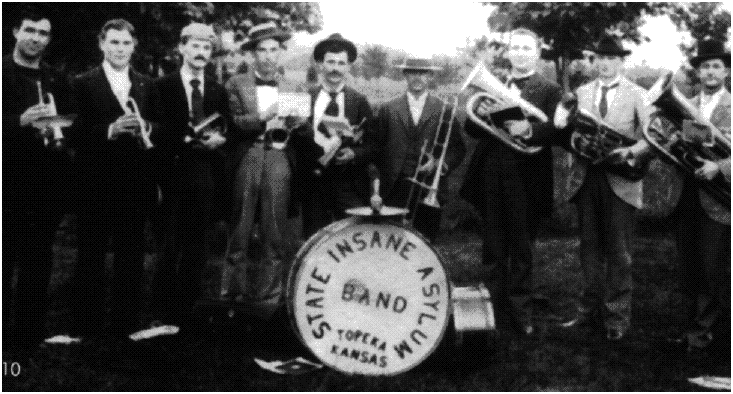
After some hours in the emergency room, ingesting and regurgitating liquid charcoal, courtesy of the belching compressor, I was admitted to a regular room. My arms were strapped to the bed rails to prevent me from dislodging the I.V. lines. Although the stomach pump had been disconnected, the tube remained, dangling from my nose.When the day shift nurse came on duty I told her my name was Babar. "Well, my name is Larene. You let me know if there's anything you need." Larene's skin was coal-black, and she wore her hair in cornrows studded with beads that clicked.
"Can you take this tube out of my nose?" Larene checked my chart. "I don't see any orders to have it removed." My head ached, with my sinuses adhering to the tube. "I don't see the point of keeping it in. If you've pumped my stomach. If it's been pumped..." Larene patted my hand. "Maybe they're planning to pump it some more. Maybe you put so much poison into your system they're just going to pump and pump for Lord knows how much longer."
My roommate was large and ashen; his hospital gown couldn't contain the wads of gray flesh. With his hand poised on the controls of the single television that hung between our beds, he asked in a weary voice, "Do you object to professional wrestling?" "Philosophically, no. Maybe on an aesthetic level." He never spoke to me again.
Go to the full
reading
The Cup of Forgetfulness
I. W. Schwartz
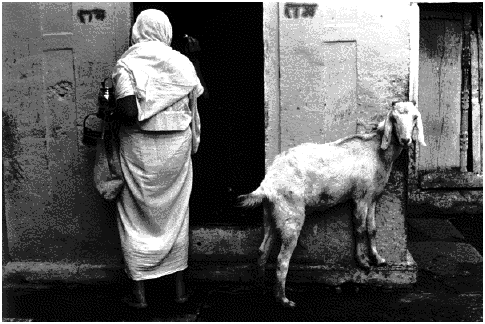
"The Indians have very strange ideas about death --- even stranger than your own," says El Jefe. "They believe in La Taza de Olvida, the 'Cup of Forgetfulness.' One sip and your remembrances --- life, good memories, the bad --- they're all wiped away. Just like that."'The Cup of Forgetfulness,'" he repeats, as he drinks down a large snort of co˝ac. "When we die, they say, we'll go to a field, not so much different from the fields around here. There are noises and lights all around --- the colors of rainbow nights, the sounds of the stars, the smell of jasmine --- perfumed winds of our pasts."
I fall into his words, think about no longer being body but a great porous entity --- one eye the sun, the other the moon --- rolling about the lush fields, bombarded by sounds and lights previously unheard and invisible. Pushed about in the astringent grasses, carried hither and yon by the vast wind --- the one that formed us from before eternity, the one that moves us until we become a whisper.
Go to the complete
readingSlavery and the Welfare State
Stephen PimpareWhat makes poor relief in the South distinct from relief elsewhere was what made most everything in the South different --- slavery. And that system was inextricably linked not only to the immiseration of blacks but also to white poverty, and to Southern programs of white welfare. If we are to evaluate the extent of and possibilities for decommodification or defamilialization in the antebellum American South, we have little choice but to examine slavery.White poverty in the South was in some measure a consequence of slavery, as blacks provided abundant, cheap labor, skilled and unskilled; in this way, the end of slavery was a boon to poor whites as well as to enslaved blacks. One journalist, visiting Virginia, voiced a common observation that poor whites were "certainly as debased and degraded as the poor negroes." Whatever comfort might have been offered to the "deserving" poor, the rest were expected to work for whatever wages were available, under any conditions, no matter how grueling, gruesome, and exploitative.
Poor whites were understood by the white aristocracy to be superior to all blacks, even freedmen (by 1846 the public whipping of white criminals was forbidden, lest the association with slaves be too great to stomach), but they were nonetheless deemed to be incompetent and dangerous. This became even more true when immigrants (especially the Irish) began arriving in large numbers, feared and hated because they were replacing the "submissive, acclimated, non-voting Negro.
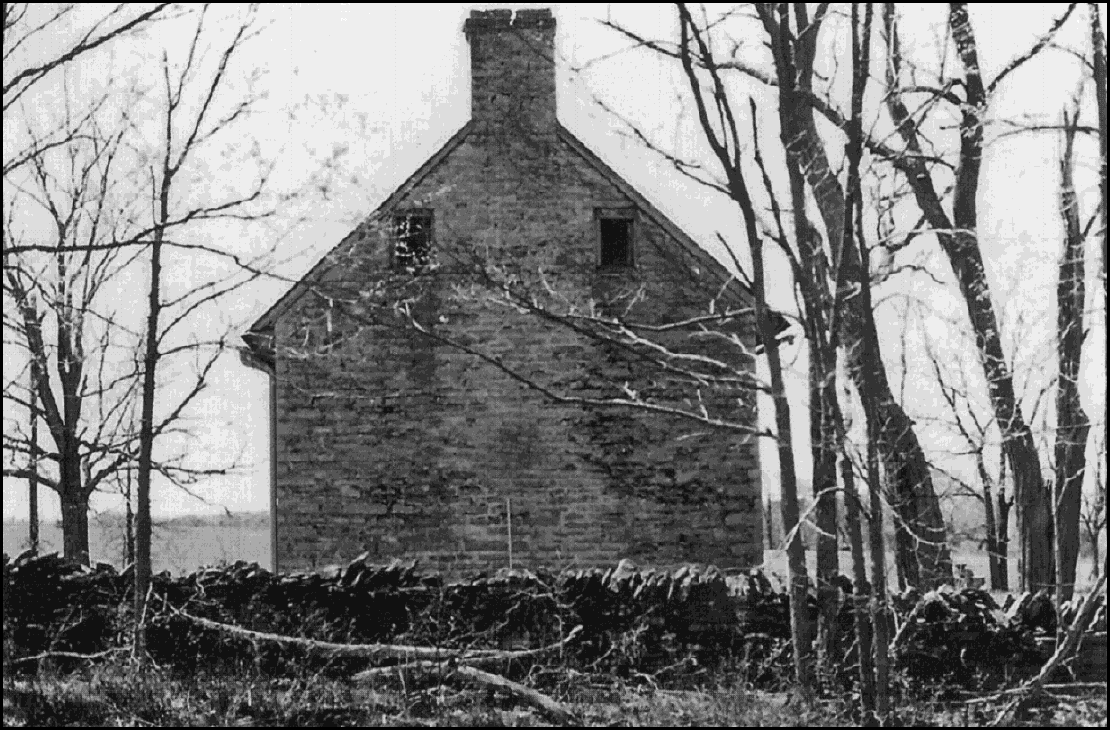
Perhaps nowhere did traditional lighting hold more meaning than in the high latitudes where the Eskimo, Inuit, and other northern peoples --- their villages dispersed across the snow and ice, and they themselves outnumbered by the animals --- lived for months at a time with scarce daylight.Richard Nelson describes the Koyukon people of the Alaskan interior: Houses were lit by burning bear grease in a shallow bowl with a wick, or by burning long wands of split wood, one after another. Bear grease was scarce, and the hand-held wands were inconvenient, so in midwinter the dwellings were often dark after twilight faded.
Faced with long wakeful hours in the blackness, people crawled into their warm beds and listened to the recounting of stories .... The narratives were reserved for late fall and the first half of winter because they were tabooed after the days began lengthening. Not surprisingly, the teller finished each story by commenting that he or she had shortened the winter: "I thought that winter had just begun, but now I have chewed off part of it."
For those in the northernmost coastal villages of Greenland, Canada, and Alaska --- where in the heart of winter, the only natural light comes from the stars, the moon, and the aurora borealis and the only source of fresh water is locked in snow and ice --- stone lamps were utterly essential for survival: among the Inuit of Greenland, "the constellation of the Great Bear is called ... pisildlat, lamp foot or stool upon which the lamp is placed."
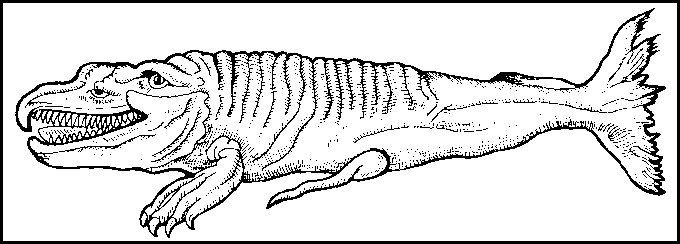
They returned to the store as darkness fell over the jungle, and the fat man arranged the watch.Two men would stay awake, and would be relieved by the other two after four hours. He himself would sleep uninterruptedly until dawn.
Before going to sleep, they cooked rice and slices of banana, and after supper Antonio JosÚ BolÝvar cleaned his false teeth before wrapping them up in his handkerchief. His companions saw him hesitate for a moment, and, to their surprise, put the dentures back in.
Since he was on the first shift, the old man took the oil lamp. His companion on duty watched him, perplexed, as he ran his magnifying glass over the signs printed on the pages.
"Can you really read, my friend?"
"A little."
"What's that you're reading?"
"A novel. But shush. When you speak, the flame flickers and the letters seem to dance."
The other man moved off so as not to disturb him, but the old man seemed so engrossed in the book that he couldn't keep away.
"What's it about?"
"Love.
At the old man's reply, he moved closer, his interest renewed.
"No kidding? Hot, rich little numbers?"
The old man slammed the book shut with a snap that made the flame jump.
"No. It's the other kind of love. The painful kind."
The man was disappointed. He shrugged and moved away. Ostentatiously he poured a large glass of rum, lit a cigar, and started to sharpen the blade of his machete.
After he had used the stone, he spat on the metal, whetted it again, and tested the edge with his fingertip.
The old man had his nose in his book again, not allowing the rasping sound of stone against metal to bother him. He mumbled the words as if they were a prayer.
"Come on, read louder."
"Are you really interested?"
"Of course I am. I once went to the movies in Loja, and saw a Mexican love film. I don't know why I'm telling you, but I cried my heart out."
"In that case, I'll have to start at the beginning, so you can tell the good people from the bad."
Antonio JosÚ BolÝvar went back to the first page of the book. He'd reread it several times and knew it by heart.
"Paul kissed her ardently while the gondolier, accomplice in his friend's escapades, pretended to look the other way, and the gondola, lined with soft cushions, glided peacefully along the canals of Venice."
"Not so fast, please," said a voice.
The old man raised his eyes. Three men were crouched around him. The mayor was a little farther away, stretched out on a pile of sacks.
"There are words I don't understand," went on the man who had spoken.
"Do you understand them all yourself?" asked another.
The old man embarked on his own explanations of the unknown terms.
The business of the gondolier, the gondola, and all that ardent kissing became a little clearer after two hours of discussion spiced with juicy anecdotes. But the mysterious city where people had to move around in boats was beyond their understanding.
"I suppose they must get a lot of rain."
"Or the rivers are always flooding."
"They must be even wetter than we are."
"Just imagine. You have a few drinks, go out for a pee, and what do you see? Your fish-faced neighbors looking at you."
The men laughed, smoked, and drank. The mayor tossed uncomfortably on his bed.
"For your information, Venice is a city built on a lagoon. And it's in Italy," he bellowed from his restless corner.
"Really! So the houses float like rafts," someone commented. "If that's the case, why do they need boats? They can use their houses for traveling around," ventured another.
"You blockheads! They're fixed houses. There are even palaces, cathedrals, castles, bridges, streets for people. All the houses have stone foundations," the fat man declared.
"How do you know? Have you been there?" asked the old man.
"No. But I'm educated. That's also why I'm mayor.
The fat man's explanation complicated matters.
"If I've understood you correctly, excellency, these people have stones that float, like pumice. But if you build your house with pumice stone, it wouldn't float. I'm sure of that. They must put planks underneath."
The mayor held his head in his hands.
"God! How can people be so stupid! Think whatever you like. The jungle has affected your brains. Not even Christ can save you from your stupidity....
The fat man was about to add something, but a gesture from the old man stopped him. The men understood, picked up their guns, put out the lamp, and waited.
From outside they heard the soft sounds of a stealthily moving body...
Luis Sepulveda
(Harvest)
Andre Schwarz-Bart